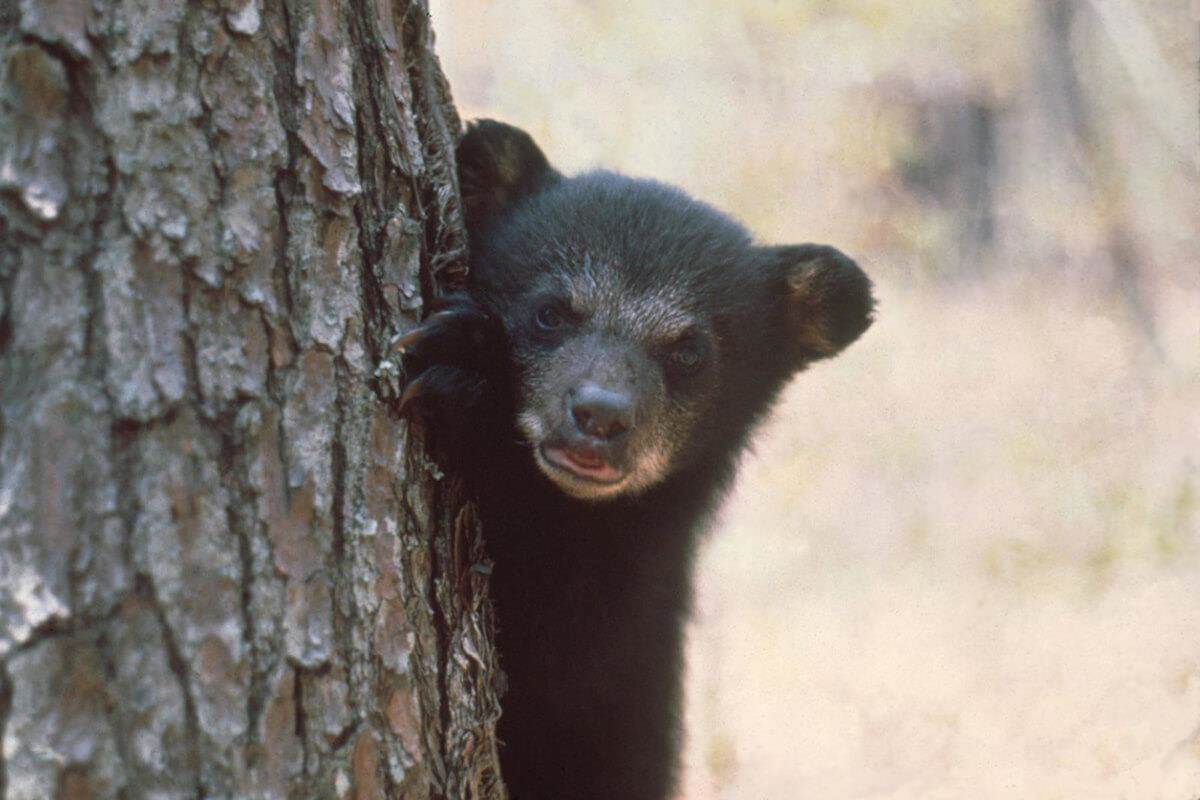As spring blooms across Florida, so does the activity of its native black bears. It’s that time of the year when bear cubs, between the ages of 1 1/2 to 2 1/2, start venturing out on their own.
With the emergence of warmer weather, these young bears embark on a journey of dispersal, exploring new territories as they transition into adulthood. While this may lead them to unexpected places, it’s essential for residents to understand how to coexist safely with these fascinating creatures.
Sharing Space with Bears: Tips for Encounters in Urban Areas
As bears expand their range, urban areas like Jacksonville, Orlando, and Tampa may witness increased sightings. However, encountering a bear should not incite panic.
Florida Fish and Wildlife Conservation Commission (FWC) reassures residents that black bears are typically not aggressive.
Nevertheless, it’s crucial to maintain a respectful distance and refrain from approaching or feeding them. By giving bears space, they’re more likely to move along on their own, minimizing potential conflicts.

Canine Encounters: Mitigating Risks During Dog Walks
Instances of bear encounters resulting in injuries often involve dogs. To reduce such risks, FWC advises pet owners to keep their furry companions on a tight leash, particularly in areas known for bear activity.
Additionally, when letting dogs out at night, creating noise by turning on and off lights and banging doors can alert wildlife, providing an opportunity for bears to retreat before pets venture outside.
Securing Food Sources: Preventing Bear Attraction
One of the most effective ways to mitigate bear encounters is by securing potential food sources. Bears are attracted to easily accessible food, including garbage, pet food, and bird feeders. Florida law prohibits intentionally feeding bears or leaving out food and garbage that could attract them.
Residents are encouraged to secure garbage in bear-resistant containers, protect gardens and beehives with electric fencing, and refrain from leaving pet food outdoors.
Bear Crossing: Safeguarding Wildlife on the Roads
With increased bear activity, motorists must exercise caution, especially on rural roads and during dawn or dusk when bears are more likely to be on the move.
Florida averages around 300 bear fatalities annually due to vehicle collisions. Drivers are urged to heed bear crossing signs, reduce speed, and remain vigilant to avoid accidents and protect wildlife.
Reporting Bear Incidents: Collaboration with Wildlife Officials
Residents encountering bear-related issues are encouraged to reach out to the nearest FWC regional office for assistance. Whether it’s an injured, orphaned, or deceased bear, prompt reporting ensures appropriate intervention and conservation efforts.
Additionally, the FWC Wildlife Alert Hotline serves as a vital resource for reporting bear-related incidents, including illegal feeding or harm to bears.
Read more news:
